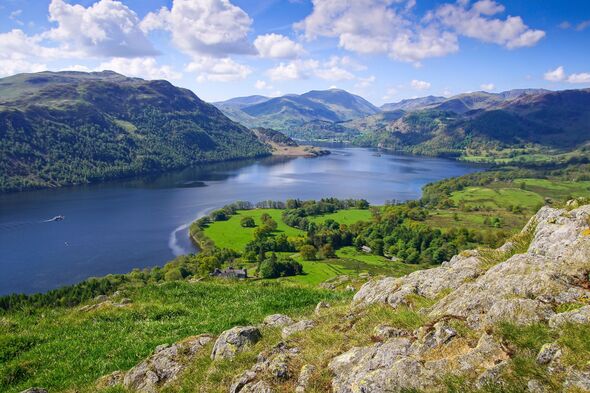
Up to 20 illicit camps set up around Ullswater Lake and Glencoyne Bay in Cumbria every weekend. (Image: Getty)
The Lake District beauty spot, which inspired poet William Wordsworth, is being blighted by illegal ‘fly-campers’ who leave the area strewn with abandoned gear and human excrement, according to locals. Up to 20 illicit camps are setting up around Ullswater Lake and Glencoyne Bay in Cumbria every weekend during the summer, with the under-30s the worst offenders, according to residents.
The fly campers – as opposed to wild campers who follow park rules – are leaving behind tents, camping gear and scorching large patches of grass with disposable BBQs. Locals also say campers have been chopping down living trees for firewood, playing music loudly through portable speakers, smoking cannabis and harming wildlife. In one case, a resident found a discarded 12-inch zombie knife.
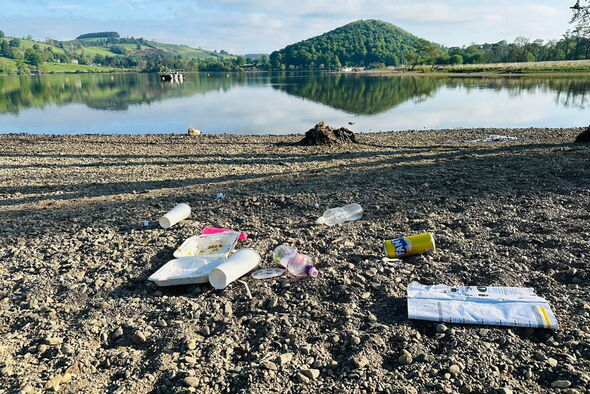
The fly campers are leaving big messes behind. (Image: SWNS)
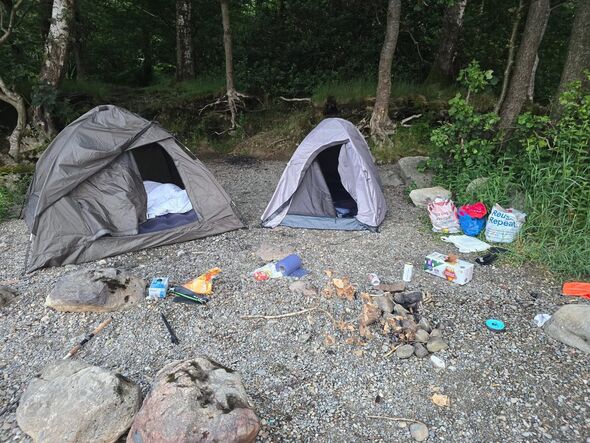
‘Fly campers’ in the Lake District have become an issue for locals (Image: Clive Rowlandson / SWNS)
Residents living near the national park say the last two months has seen an “epidemic of flying camping” with a sharp rise in illegal camps as the UK enjoys balmy, summer temperatures.
Wild camping is banned around the shores of Lake Ullswater with visitors offered formal camping at seven National Trust sites some just hundreds of metres from the water.
According to the Lake District website, wild camping is generally legal but only if key rules are followed.
Camping is not allowed if close to towns and villages, the lake shores and it is not allowed to leave litter or discarded camping gear.
Clive Rowlandson, 54, who has lived in the area his whole life says they are an “eyesore”.
He said: “The community is heartbroken – there is constant antisocial behaviour, littering, and just general disregard for the area.
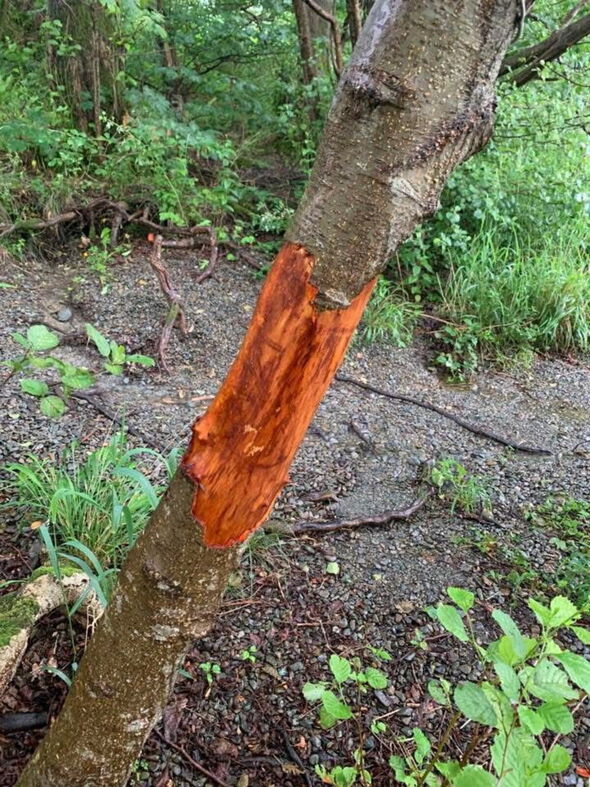
Locals also say campers have been chopping down living trees for firewood. (Image: SWNS)
“It is common to find litter on the shoreline and around two or three discarded camp sites left for locals to clean up
“The fly campers numbers have doubled over the passed year due to the warm and still weather and they bring nothing to the community other than rubbish.
“They are staying in such a beautiful location yet actually ruining other people’s experience – a lot of genuine people visit who are interested in the area and its history and don’t want to see the place a mess.
“It is a shame – they are spoiling it for those who do respect the area.”
The keen walker says he and many other locals are “worried” the problem is going to get a lot worse and are “frustrated” the council and National Trust aren’t challenging the unwelcome visitors.
He said: “We don’t want those people who have already camped in the area telling their friends to come and visit as there no one is challenging them, taking their names, or asking them to move on.
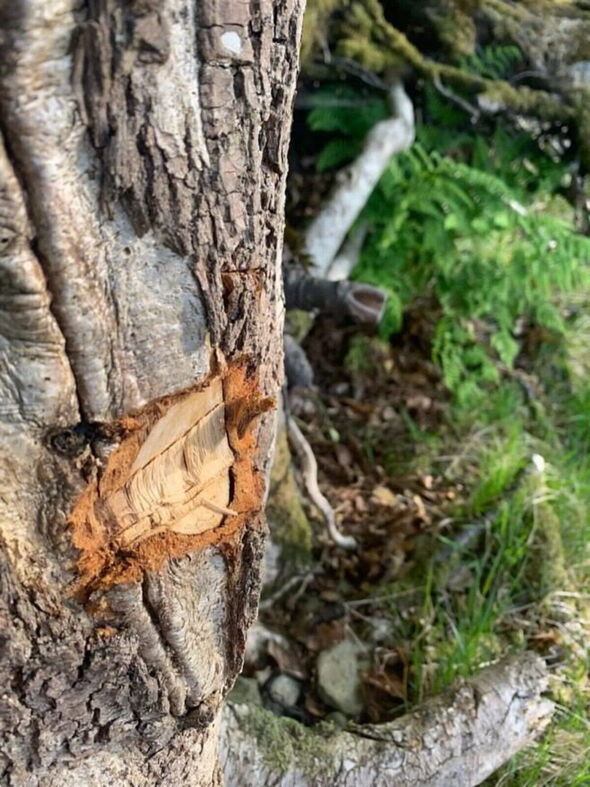
Another damaged tree by fly campers. (Image: SWNS)
“If there were strong boundaries in place then the campers would think twice before making their decision.”
On the Lake District Website, it says fly camping is not permitted – though wild camping is allowed if it is in “special areas” or visitors follow 12 strict rules.
There a 141 dedicated campsites in the area where visitors can pitch a tent without breaking any rules – there are seven located around Ullswater Lake the closest just a one-minute walk from the lake.
Wild camping rules include not lighting any fires, staying for only one night, keep groups very small – only one or two tents, camp as unobtrusively as possible with inconspicuous tents which blend in.
It also informs those who do wish to wild camp that the landowners have the “legal right” to order you to “break camp and move on”.
Those who are found guilty normally receive a fixed fine – recent cases have seen £100 fines given to guilty parties.
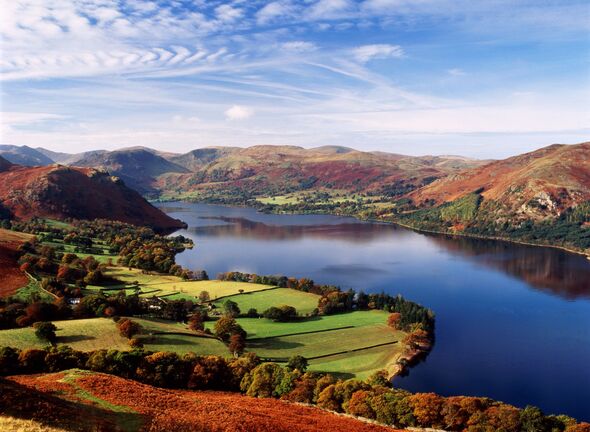
Wild camping is banned around the shores of Lake Ullswater. (Image: Getty)
National Trust’s Lead Ranger, Stephen Dowson, says: “We share the frustrations of local people and those being impacted by fly camping and litter.
“We want to encourage people to enjoy the outdoors and to get out and enjoy the countryside, but to respect the landscape and wildlife who make these places their home.
“Fly camping is illegal and camping of any kind is not permitted on National Trust land unless it’s within an official campsite.
“Not only does this anti-social behaviour spoil places for other visitors, it also damages habitats and causes harm to wildlife.
“Clearing up after fly-campers also takes up a significant amount of our ranger teams’ time in the Lake District, taking them away from vital nature conservation work.
“We’re very grateful to the local people who are going out of their way to clear up after the campers.”
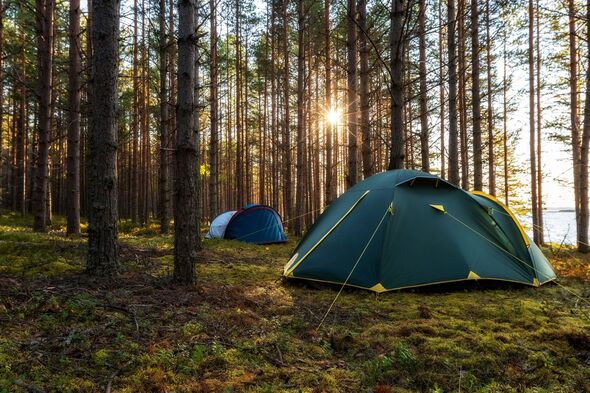
(File image) Residents say the last two months has seen an ‘epidemic of flying camping’. (Image: Getty)
The Lake District also said they “continue to encourage” people to camp in the most responsible way by staying at a recognised campsite.
Award-winning filmmaker Terry Abraham who lives in the Eden Valley, also says the issue with such beauty spots is getting “out of hand”.
He says ‘fly camping’ has become epidemic in the Lake District and particularly around the Ullswater area.
Terry said: “It is a term that has come around fairly recently to distinguish rule breakers from genuine wild campers, high up on the fells who respect nature.
“Sadly, have seen a negative generational shift in under 30s when it comes to respecting nature.
“I’ve seen with my own eyes people rip out ‘no camping’ signs and use them as firewood – it is truly shocking.
“It has got to the point where I no longer want to go for a walk or cycle about Ullswater or the fells as it makes my blood boil and breaks my heart.
He blames it on a lack of understanding of the countryside code and “strict penalties” not being in place or endurances by those in power.
He said: “People hear of an outdated £50 fine and just roll their eyes – but change can be enforced through education too.”
Only last month the Lake District National Park Authority (LDNPA) asked people to be ‘Lake District Kind’ during the peak summer season.
It followed reports from the authority and other agencies of littering, abandoned disposable barbecues, ‘fly camping’ and fires being started in popular areas.
More than 18 million people visit the Lake District each year.
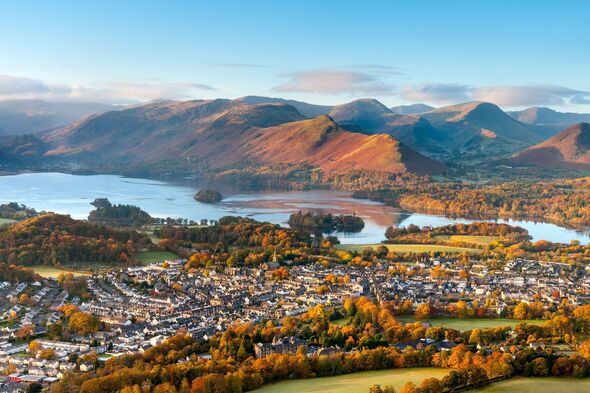
The Lake District National Park Authority (LDNPA) asked people to be ‘Lake District Kind’. (Image: Getty)
Simon Hill, visitor management lead for LDNPA, said: “We encourage everyone who is looking forward to enjoying the Lake District to treat it with respect and be Lake District Kind.
“While most people respect the landscape, we are saddened to see instances of littering, fly camping, and fires being lit.
“This isn’t just a blemish on the beautiful scenery – it can pose a real threat to safety, habitat, and wildlife.
“Please remember that the Lake District isn’t just a beautiful holiday location, its landscape is home to thousands and is relied upon for livelihoods.
“The National Park is for the enjoyment of all, and by visiting responsibly everyone can appreciate its inspirational scenery peacefully.”
According to a spokesperson for the authority, wild camping is “normally tolerated if campers are as unobtrusive as possible, staying for just one night and leaving the area as it’s found”.
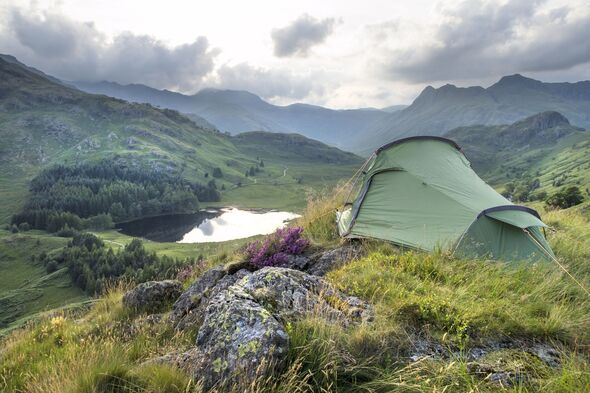
(file image) In some areas, wild camping is ‘normally tolerated if campers are as unobtrusive as possible’. (Image: Getty)
A spokesperson for Cumbria Police said: “We regularly work with partner agencies including local councils and Lake District National Park Authority as part of engagement and enforcement of issues around illegal campaign and antisocial behaviour in such areas, as well as inconsiderate parking where highways are obstructed.
“We will continue to work with partners and would encourage people to report illegal behaviour so that action can be taken.”
This year the Lake District Search and Mountain Rescue Association have also reported a sharp increase in call-outs and deaths on the fells of walkers.
They reported 2024 was their busiest year ever, responding to more than 200 incidents between them.
Poet William Wordsworth is said to have inspired to write ‘I Wandered Lonely as a Cloud’ while walking near Ullswater Lake.
















